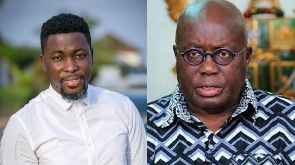- Home - News
- TWI News | TV
- Polls
- Year In Review
- News Archive
- Crime & Punishment
- Politics
- Regional
- Editorial
- Health
- Ghanaians Abroad
- Tabloid
- Africa
- Religion
- Election 2020
- Coronavirus
- News Videos | TV
- Photo Archives
- News Headlines
- Press Release
General News of Friday, 24 November 2000
Source: GNA
Political parties divided over mode of voting
Two weeks to the December 7 election, the seven political parties are divided over the Electoral Commission's (EC's) decision that only those with the Photo Identification Cards could vote.
While some interpret it as disenfranchisement of those still holding thumbprint ID cards, others see it as a good administrative measure to combat electoral fraud. In separate interviews with the Ghana News Agency (GNA) in Accra, the People's National Convention (PNC), United Ghana Movement (UGM) and the National Democratic Congress (NDC) were against any administrative measures that will disenfranchise some voters.
The Convention People's Party (CPP) and the New Patriotic Party (NPP), however, support the "No Photo, No Vote" decision by the EC. Professor Kofi Awoonor, a Vice-Chairman of the NDC, appealed to the EC to come out with a definite position on the issue.
According to him, "there is confusion in the minds of millions of Ghanaians particularly those who could not have their pictures taken, though they are registered voters, as to what their position will be on Election Day." Prof. Awoonor said: "We speak on behalf of not only NDC would-be voters ...but also on behalf of the millions of Ghanaians who qualify to vote and have their names on the register."
Mr. Ahmed Ramadan, National Treasurer of the PNC, said the issue of photo ID is an administrative procedure, which should not be used as a hindrance to the constitutional right of a voter.
He said the political parties agreed to the use of photo ID cards for easy identification and not to disenfranchise a registered voter. Mr Ramadan reiterated an earlier position of the EC Deputy Director of Operations, Mr David Adeenze-Kangah, that if the photo ID is made mandatory, parties could manipulate and collect the ID cards of opponents thereby preventing them from voting.
Citing another instance that could prevent a registered voter from casting his ballot, Mr Ramadan said a husband could collect the card of his wife or child who, he knows, belongs to a different political party to disenfranchise them.
He said: "although electoral fraud is criminal, it is equally criminal to prevent an eligible voter from exercising his or her constitutional franchise." Mr Ramadan called for a proper procedure for identifying registered voters without the Photo ID on polling day to avoid confrontation.
Mr Joseph Otoo Essiifie, Public Relation Officers of United Ghana Movement (UGM), questioned the rational behind refusing a voter with a thumbprint card even if only one party agent raises an objection. Mr Essilfie said an election is a competition and the EC should not expect all party agents to agree on such a critical issue, especially in the stronghold of an opponent.
He suggested that those with thumbprint ID cards should be allowed to vote, but should form a different queue to be scrutinised properly before voting. Mr Essilfie said he entertains the fear that where all the party agents except one of them agree, there is the likelihood of a voter organising thugs to beat that agent up.
Dr Abubakr Al-Hassan, National Chairman of the Convention People's Party (CPP), however, upheld the "No Photo, No Voting" school of thought. He said: "Every game has a rule which all competing teams must abide by.
If the rule for election 2000 is No Photo, No Voting, so be it". Dr Al-Hassan said the campaign tour of the CPP has taken them throughout the country and they are yet to hear complains of not having the photo.
Mr Dan Botwe, General Secretary of NPP, who was cautious to comment, appealed to the EC to explain its working document, "Guide to Election Officials 2000" saying this will clear the confusion surrounding the photo ID issue.
He said all measures must be put in place to check electoral cheating. "However, this should not lead to a constitutional crisis".










